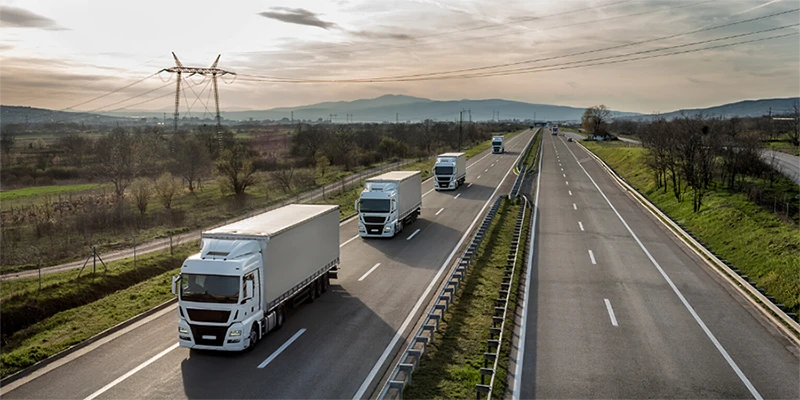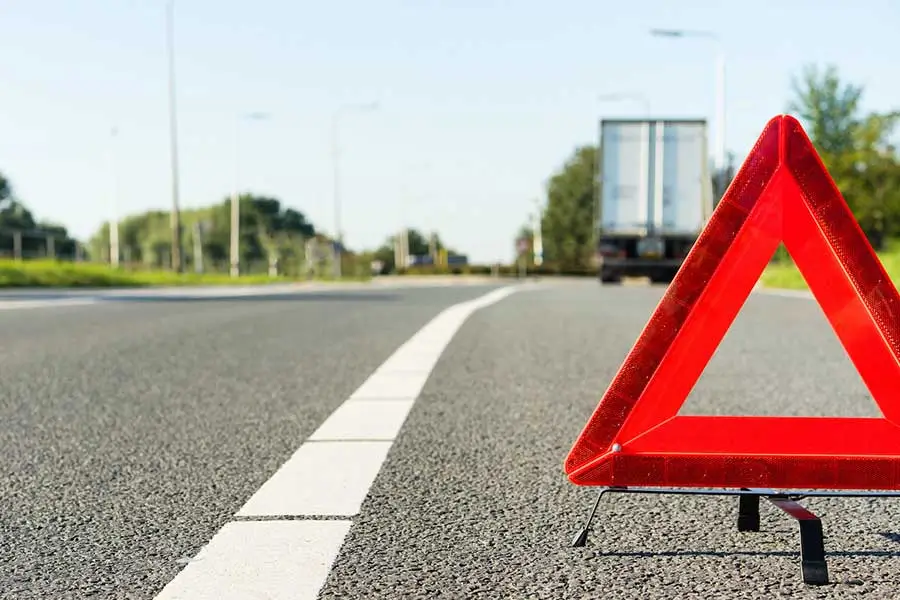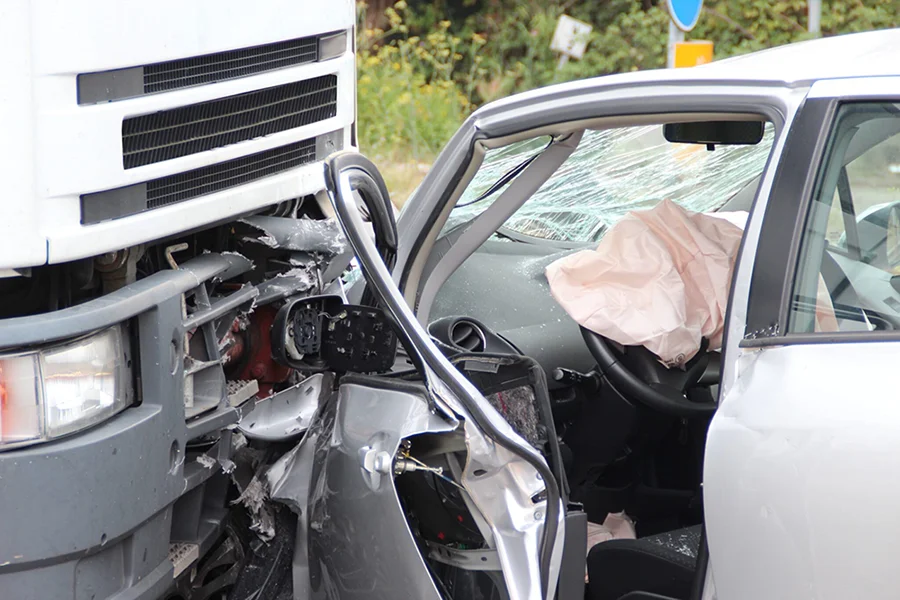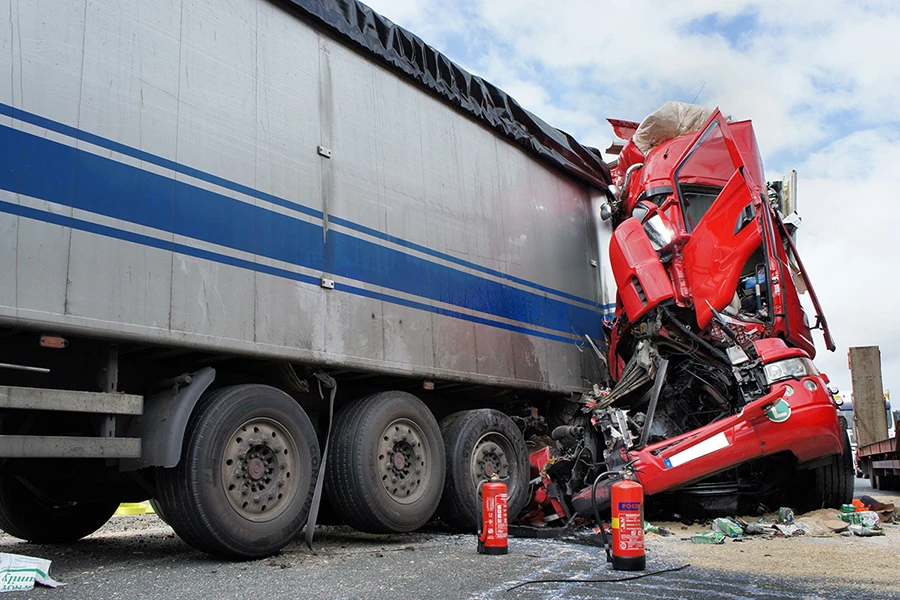Is Autonomous Truck Platooning Legal in Your State?
By: Simon Law | August 13, 2019

Is it safe for an 80,000 pound truck to follow 50 feet behind another semi-truck of equal size for the sake of cutting costs? Many states are considering this issue while establishing the laws and policies surrounding autonomous driving in general. Since this technology has emerged, companies are looking to capitalize on the cuts to labor costs and fuel efficiency; meanwhile, public safety becomes an afterthought, which is why states across the country are choosing to either closely regulate the act of “platooning” or outlaw it altogether. Some states, including Missouri, have pending legislation on this issue of platooning.
To check whether this practice is legal in your state, take a look at our 50-state survey.
What is Platooning?
Platooning refers to vehicle-to-vehicle communication technology that uses radar, GPS, and Wi-Fi to electronically link up or “platoon” two or more large commercial trucks together. There is a lead vehicle that controls the direction and speed while all following trucks respond to the lead vehicle’s movement, such as slowing down, accelerating, or braking when the lead vehicle dictates.
This new technology allows platooned trucks to follow each other at a distance much closer than would otherwise be considered legal—sometimes even as close as 50 feet. It is essentially legalized tailgating.
Proponents of platooning—primarily trucking companies and their lobbyists—claim it allows for 5%-10% fuel reduction, increased road capacity, and a lower number of fatigue-related crashes. Whether or not these statements are true has yet to be seen, but anyone who has witnessed the catastrophic outcomes of large truck collisions have the right to be concerned.
Potential problems with platooning include, but are not limited to…
- Long platoons can prevent other vehicles on the road from being able to change lanes, leading to drivers speeding to get ahead of the trucks or even unsafely weaving through the platoon line.
- If the lead vehicle is involved in a crash, all other platooned vehicles behind it will most likely also be involved in that same crash due to the proximity of driving, leading to multiple vehicle pile-ups.
- Seeing a platoon on the road might normalize the act of tailgating.
- Because this is a relatively new technology, insurance companies may try to get out of accepting the liability for accidents caused by platoons.
Companies Across the U.S. Are Testing Autonomous Driving
A number of truck manufacturers and startups are preparing to have platoons fully hit the pavement in the next few years. Across the country, companies like Navistar International, Daimler AG, and Tesla are experimenting with autonomous technologies on designated test tracks. Some have even taken their testing to public roads and highways in the U.S., such as package delivery company FedEx and truck maker Volvo AB.
Moreover, several other major commercial vehicle manufacturers have launched pilot programs in Europe to attempt to demonstrate the safety of truck platooning and clear the way for regulatory approval here in the United States.
State Regulations on Platooning and Pending Legislation
Platooning is not legal in every state. Many states have “following too close” driving statutes already in place that impact platooning, while others are exempting these rules in order to authorize the testing of platooning technology on public roads. Currently, 20 states have legalized some form of platooning, with legislation pending in another four.
The National Highway Traffic Safety Administration believes that the goal of enacting state policies “need not be [about] uniformity or identical laws,” but rather “sufficient consistency of laws and policies to promote innovation and the expeditious widespread integration of Automated Driving Systems.”
[button color=”accent-color” hover_text_color_override=”#fff” size=”large” url=”https://simonlawpc.com/wp-content/uploads/2019/12/platooning-legislation-50-state-survey.pdf” text=”Click Here to Read Our 50-State Survey” color_override=””]
Contact a Trucking Accident Attorney at The Simon Law Firm
The trucking industry has a poor track record of prioritizing the public’s safety over profits, which has led to continuous year-over-year increases in fatal truck accidents in Missouri and beyond. After working on a variety of truck accident cases, our team of St. Louis trucking accident attorneys have seen the devastating effects and believe the industry has a ways to go in improving its safety record before rolling out platooning onto our highways.
If you or a loved one has been injured in a trucking accident, or your loved one died as a result of a trucking accident, contact our personal injury attorneys immediately to discuss your case.


